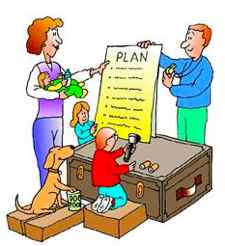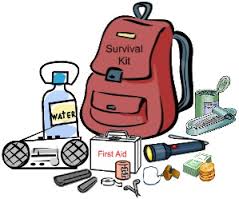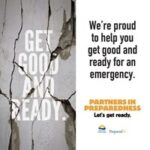Are You Prepared for an Emergency?

It is also important to be aware of extra items you may need depending on your specific area or community. Natural disasters can have similar consequences in all parts of the world, however knowing your community and its surroundings can better prepare you for any type of emergency. You may need different supplies depending on whether your area is more prone to things like earthquakes, floods, tornadoes, etc. The Government of Canada website has great resources and can help you determine some of the more imminent dangers to be prepared for in each community.
Having a family plan in the event of an emergency is also something every household should consider. Making sure that all family members are aware of what to do in any given emergency situation is vital. You may not all be together when a disaster strikes and having an idea of where to meet, how to contact each other, and what to do in different situations is important.
Keeping extra copies of important papers and documents may come in handy if you are unable to return to your house for some time. Copies of birth certificates, drivers licence, passports, insurance papers, etc. are good to duplicate for friends or family members to hang on to should you need them.
There are some basic items you should have ready and accessible in case you need to evacuate or are stuck in your house for a long period of time. It is important to have each family member know where the emergency kit is kept and make sure it is easy to transport. You may want to have a few smaller backpacks that each family member can carry should you need to walk long distances.
Some of the basics you should have for your kit include:
- Water – There should be enough water for each person to have 2 litres per day
- Food that won`t spoil such as energy bars, or canned or dried food
- Flashlights – either crank or battery operated (batteries should be changed yearly)
- Radio – either crank or battery operated
- Manual can-opener
- First Aid Kit
- Cash – smaller bills and coins
- Extra keys to your house and car
- Candles (with matches or lighter)
- Warm blanket or sleeping bag
- Change of clothes and shoes
- Toiletries’
- Utensils
- Additional items as needed per family (Prescription medication, baby formula, pet food, books/toys/crayons/paper for kids)
Look through our 72 Hour Kit Supplies Quick Pick section for suggestions of other items that can be purchased to make your kits best suited to you and your family’s needs. Having an emergency car kit is also a good idea should you be in your car when you are faced with an emergency.
Being prepared is sometimes the last thing we think about; although, if we are faced with a disaster we will be thankful we took the time to ensure our own safely and the safety of our family.







